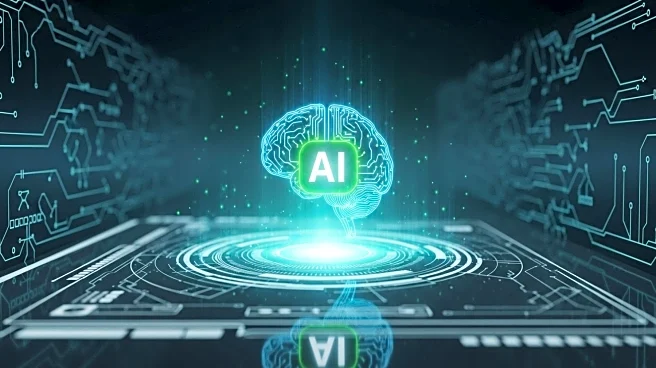What's Happening?
The Chan Zuckerberg Initiative (CZI) has launched new resources aimed at improving artificial intelligence (AI) accuracy in K-12 education. These resources include the CZI Knowledge Graph, which provides a comprehensive dataset to help developers enhance AI-generated content accuracy. The dataset incorporates academic standards from 50 states across core subjects, focusing on precise skills and concepts, particularly in math. Additionally, CZI has expanded access to its Evaluators tools, designed to ensure AI-generated text is accurate and suitable for educational use. These tools initially target literacy for 3rd and 4th-grade students, assessing vocabulary complexity and sentence structure to determine grade-level appropriateness.
Why It's Important?
The initiative addresses significant concerns regarding AI implementation in education, particularly algorithmic inaccuracies. By providing these tools, CZI aims to ground AI applications in rigorous learning science, aligning them with educational standards. This effort is crucial as AI becomes increasingly integrated into educational settings, impacting how students learn and teachers instruct. The tools offer developers a framework to create reliable AI applications, potentially enhancing educational outcomes and fostering trust in AI technologies among educators.
What's Next?
CZI plans to expand its Evaluators tools to cover additional text complexity measures and include more grade levels. Future developments will also involve assessing AI outputs against educational rubrics, such as state academic standards. This ongoing expansion aims to provide comprehensive support for developers, ensuring AI tools meet educational needs and standards. Stakeholders, including educators and technology developers, are likely to engage with these resources to improve AI applications in schools.
Beyond the Headlines
The release of these tools by CZI highlights the growing intersection between technology and education. It underscores the importance of developing AI systems that are not only technically proficient but also educationally sound. This initiative may prompt further collaborations between tech companies and educational institutions, fostering innovation in teaching and learning methodologies.










